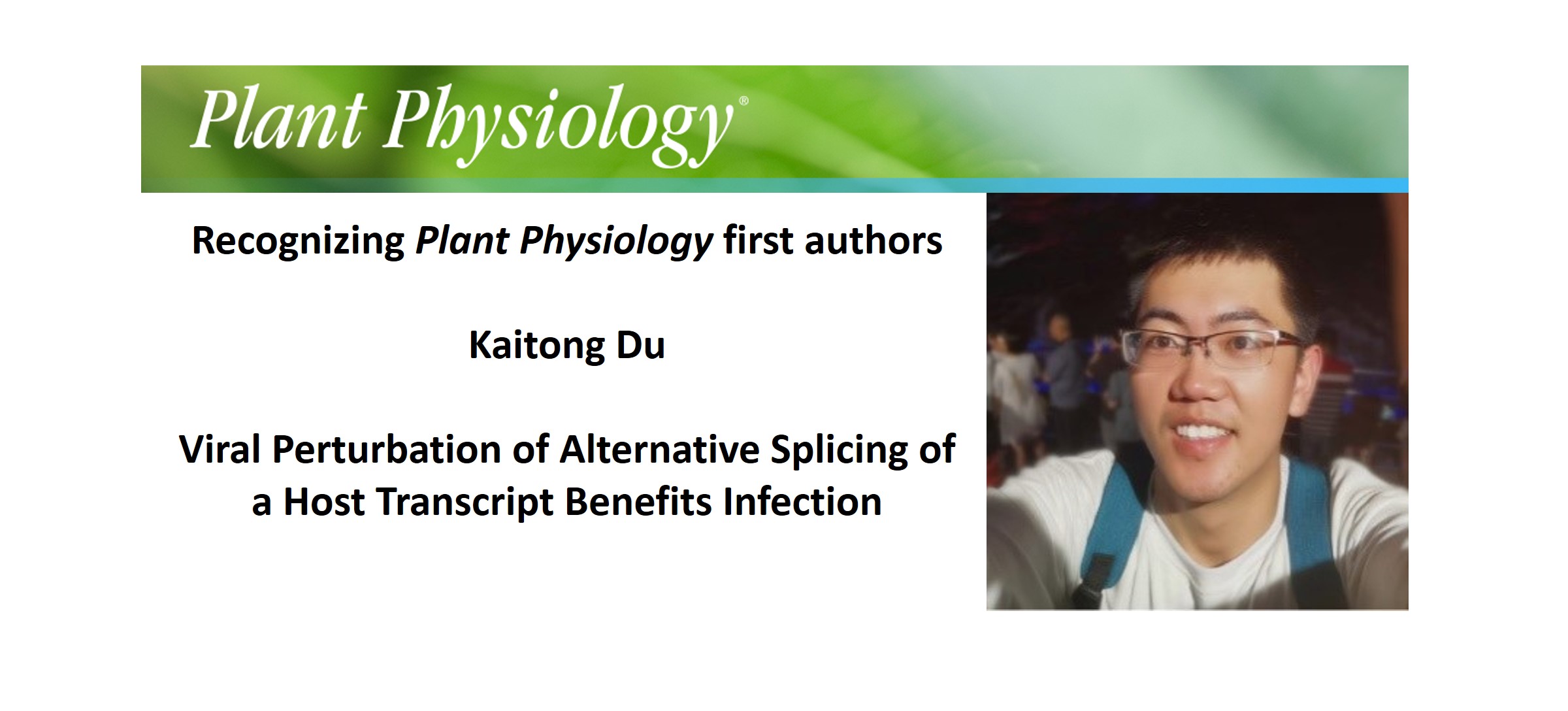Recognizing Plant Physiology authors: Kaitong Du
 Kaitong Du, first author of Viral Perturbation of Alternative Splicing of a Host Transcript Benefits Infection
Kaitong Du, first author of Viral Perturbation of Alternative Splicing of a Host Transcript Benefits Infection
Current Position: PhD student in the Plant Virology Lab (2018-), Department of Plant Pathology, China Agricultural University, Beijing, China
Education: B.Sc. in Plant Protection, China Agricultural University (2012-2016); M.Sc in Plant Pathology, China Agricultural University (2016-2018)
Non-scientific Interests: traveling, cycling, reading
Brief bio: I got interested in Virology when I completed the course of Microbial Etiology in sophomore year. Since then, I started my journey of scientific learning under Dr. Tao Zhou’s supervision. Subsequently, I have gotten fascinated about virus-host interactions. In this study, we compared changes in gene transcription and protein accumulation in transcript splicing patterns in maize infected with the globally-important pathogen sugarcane mosaic virus (SCMV). Our results suggested that changes in alternative splicing play a major role in determining virus-induced proteomic changes. Focusing on maize phytoene synthase 1 (ZmPSY1), we found that although SCMV infection decreases the total ZmPSY1 transcript accumulation, the proportion of splice variant T001 increases by later infection stages so that ZmPSY1 protein levels are maintained. Furthermore, we determined that ZmPSY1 is a pro-viral host factor that is required for maximal SCMV infection, and for symptom induction. We propose that pathogen-stimulated differential, alternative splicing is not an incidental effect of infection, but provides a mechanism by which a pathogen maintains efficient expression of an essential host factor. I’m currently performing experiments to answer which SCMV proteins and how to modulate splicing. I look forward to dissecting the molecular network of virus-host interplay and developing new strategies to block and/or control viral infections.



